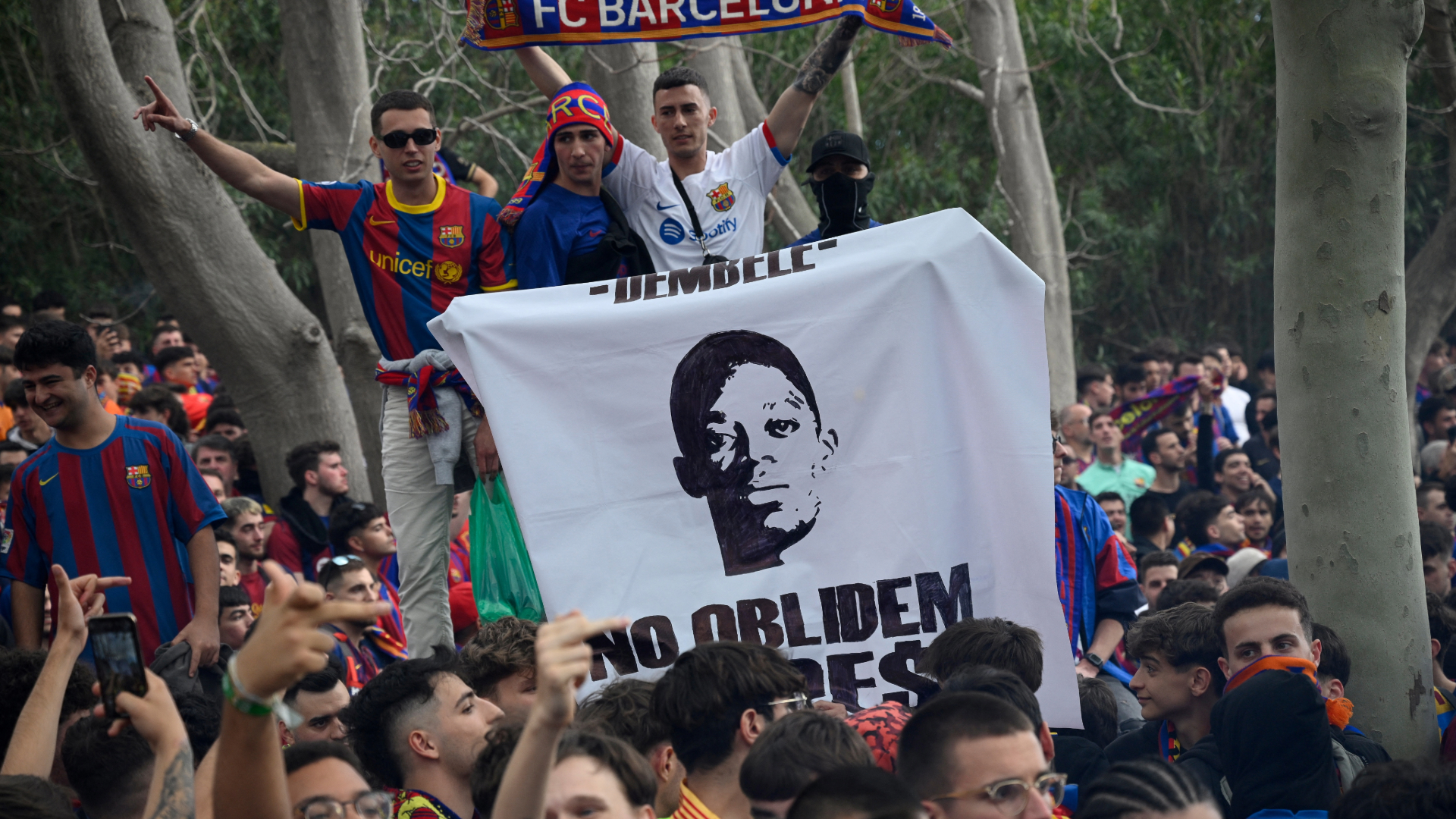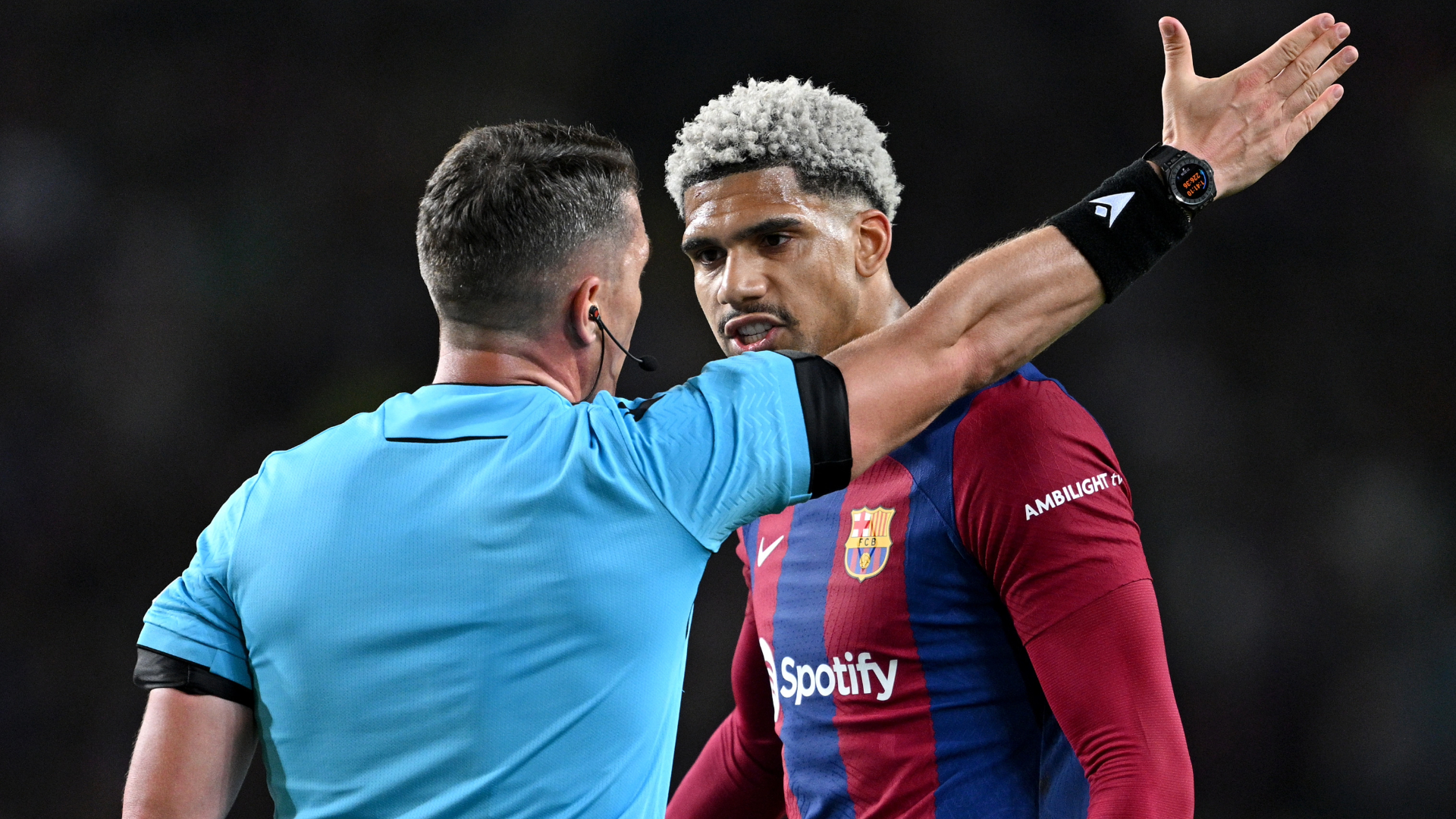Inducing Flow, Elevating Playmakers
It was in Part I where I shared a bit about flow theory and method; that flow, it was discovered, is that magical moment when everything seems to come together—and the method to increase the chances of being in flow state are straightforward and measurable. Again, in that set of circumstances, flow state becomes increasingly likely, and, when in a state of flow, such a period can be sustained longer.
But what are the specifics? Well, specifically, flow-conducive environs are comprised of eight components which revealed themselves during the decades-long studies. We’ll get into each one of them here, in the specific context of improving Paris Saint-Germain’s performance.
1. A Clear Goal
What is PSG’s goal as a football club? It seems as if there’s a straightforward and easy answer to this question, but is there? That is, has the club articulated something with clarity towards which progress can actually be measured?
Some would say that the club has the clearest of goals: victory in a UEFA Champions League. But, as Real Madrid showed over the past four years, that type of goal is broken in its starkness, in its rarity, a “state of being,” not unlike a light switch, rather than a practicable goal. Like the light switch either being “on” or “off,” this type of broken goal says either you are possessed of “Final victor” state, or you are not. Goals have to be worked on daily; how do you work on the activity of winning the UCL final…every day?
Rather than making the goal perfection, the smarter, far more actionable goal is to demonstrate everyday the relentless pursuit of perfection in all football matters…to locate the effort in the daily work, the sum total of which places the team in the best position to win not just this year but every year. One characteristic of this approach—a corollary of that “relentless pursuit” goal—that PSG can implement right now is the idea of playing never against your ostensible opponent, but against your best possible selves.
FC Barcelona, particularly during the era of Xavi and Andrés Iniesta, embodied this principle completely; Cristiano Ronaldo, as much as I actively dislike him, Michael Jordan and Jerry Rice also embody this approach form a sporting perspective, and crucially, make everyone around them more disciplined towards any shared goal by their behavior in non-game spaces as much as they did during the match or game. Jimmy Johnson, coach of the Dallas Cowboys during a period of success so comprehensive the team he built won another Super Bowl without him even being present (and with a coach who actually regressed the team in his stead), deployed this approach as well.
When did the players on Barcelona most challenge themselves, and how did they do it? They challenged themselves most in two spaces: the practice pitch, and against opponents they were “supposed” to beat. In what ways? Drawing upon the legacy of La Masia de Can Planes, usually shortened to La Masia—the Barcelona youth academy—the senior players took the development ethic found there and delivered it as culture on the practice pitch every day. So every day, Barcelona players—from Lionel Messi on down—had to prove themselves against the best of themselves as measured in the metrics of the practice session. The intensity—self-imposed—of delivering in those sessions is known today in footballing circles as often more reflective of the essence of excellence than many competitive matches. Ronaldo, Rice, and Jordan were commonly known for the intensity displayed during practices and off-season workouts…because the clarity of the goal—the relentless pursuit of perfection—meant that the time on the pitch/in the game mattered less and less. Indeed, it ultimately comprises 5 percent of a player’s time. How do players and managers and clubs comport themselves the other 95 percent of the time? Compare what we know of these clubs and athletes to what you regularly see of PSG’s “practice sessions,” themselves far more often relaxed kick-a-bouts than any relentless pursuit of more perfect performance, and we can begin to understand why PSG struggle against vigorous challenges…they are failing to challenge themselves in an ultimate sense, against their perfected vision of themselves, every day.
An additional component of this approach has to do with the approach player and club culture takes to playing against the so-called “minnows” of the league. Jordan would sometimes be accused of “padding his stats” against weaker teams that had no way of stopping him, but when you talk to players who performed at this level, what you come to understand is that, for example, Barcelona doesn’t let up on SD Huesca because they are not ever playing against Huesca.
They are at all times playing against the perfect idea of themselves; Huesca may present themselves in front of Barcelona on a given day (or in front of Ronaldo, or the Cleveland Cavaliers in front of Jordan, or the Tampa Bay Buccaneers at the time in front of Rice and the San Francisco 49ers), but the best clubs and players aren’t playing them.
For Paris Saint-Germain—the club and the elite players—the day-to-day, moment-to-moment focus has to be a relentless pursuit of perfection mainly embodied in the mind. That mental vision of what perfection looks like is what PSG as a whole must vigorously, competitively pursue.
Falling short with that approach produces competitive outcomes everyone can understand, whether or not they result in a UCL victory. When you lose and everyone can see how you went about your business, the loss can be accepted. It’s when we know the club has a broken goal-setting process, and a broken day-to-day operations culture, that losses like Remontada and the other day at home against Manchester United get cast in sharp critical relief.
2. Feedback
Having set proper, smart goals, the club must deliver outstanding feedback to all the stakeholders within it. Feedback that drives flow state is superior information on what is “right” and what is “wrong” in the culture that meets the challenge of the goal that’s been set.
For example, rumor has it that Marco Verratti lives an off-pitch lifestyle that physiologically reduces his capacity to perform on the pitch…a way of being that makes it impossible for him to compete against the Verratti of a few years ago, let alone his ideal best possible self.
The feedback Verratti needs—from his Italian peers, from elite players, from the team captain and vice-captain, and from all the club staff—is that this is patently, definitively unacceptable. How can we be serious about the relentless pursuit of perfection at the highest level of the world’s most prolific sport if we are self-sabotaging our potential like that on a daily basis? Ask yourself, what would Jordan say/do if he came around the corner and saw Scottie Pippen or Horace Grant smoking a cigarette before practice? We know the answer.
Every single thing the club president and manager do must connote a singular commitment to “relentless pursuit,” and outstanding feedback is a key component of that.
To be fair, it is eminently clear that Thomas Tuchel started out early on giving clear feedback in this type of area; the ongoing feedback, however, has been around the wrong goal, and thus will produce a fragmented outcome, and certainly not one that drives players into flow state.
3. Challenges Must Match Skills
The third component to achieving flow state is a proper alignment of skills to any challenge; again, this is built upon, smartly, on a daily basis, requiring the deep formation of attention from the staff regarding each player. When skills can’t consistently meet the challenge, anxiety occurs. When skills far exceed the challenge, boredom manifests.
It’s why Thilo Kehrer failed us last week against United; his skills have been inconsistent, especially against competent competition that press the back line, all year. Possessed of a skillset that can’t consistently meet or exceed the challenge in front of him at right-back, anxious distribution was the predictable result.
It’s also why, again, PSG need a culture where they are not playing against weaker Ligue 1 opposition, and then, as the English media love to submit, trying to “turn on the switch” come Champions League time. A culture where you are playing against a perfect vision of yourselves means that you are always “on,” and that there is no switch, because no differing level of intensity and focus accompanies the opponent…You are the permanent, perfect opponent…all the time.
4. Concentration and Focus
Historically, this idea of an elevated level of attention formation goes back to submissions of Socrates around concepts known as paideia and arete. Paideia is the ancient Greek idea of perfection, of excellence. Werner Jaeger, in his seminal work Paideia: The Ideals of Greek Culture, submits that the Greek mentality, at its best, was “to be always pre-eminent,” to always have a disciplined, perfecting formation of one’s attention to maximize one’s outcomes. This idea was also called arete, translated as “excellence of any kind.” “Arete,” Werner writes, “was the central ideal of all Greek culture.” The Chinese refer to this as “kung-fu,” the disciplined development of skill acquired through concentration, learning, and perfecting practice (today, we locate that term, of course, exclusively in the West as a martial arts term, but for the Chinese, one could exhibit kung-fu in the maintenance of one’s garden).
So this notion—deep concentration and a transformative level of focus—is an old, even ancient one. PSG can draw upon notions from antiquity today through a few straightforward steps to move the team closer to consistent flow state:
- Re-define comfortable/uncomfortable: redefining, through environmental management, clarity on goal-setting and discrete (note, not “discreet,” but very specific and actionable) feedback what “comfortable” looks and feels like at PSG will both drives the right types of players to and from your organization more often, but also properly set sensibilities around “comfort” in forward-facing ways that are aligned with the goals of the club. We want players who are not about the aforementioned goals and approaches to be supremely uncomfortable at PSG.
- Visualization and Auscultation: everything about the sights and sounds of the PSG project should contribute to the focus and concentration of the players on the goal of ”relentless pursuit” of perfection…from what happens when they drive to practice at Camp des Loges to what the game day bus is like from the hotel to what kind of content the club produces with players in it.
- Shutting out distractions: a corollary to the point above, the shutting out of distractions across the board is, I think, key to locking in and focusing on the goals at hand. Just as David Beckham set forth a new era in the area of image rights, I would like to see PSG incentivize players through contract components with the opportunity to improve their pay by removing themselves from social media.
Across these goals are challenges related to language, home nation culture/enculturation and learning styles; challenges all elite clubs have, as they all recruit globally. I don’t have a ready-made answer for that, as I recall, for example, seeing the world’s best translators at FIFA events sometimes—not often, but not just occasionally either—get the translation wrong, or the intensity of the submission wrong, or the colloquial discourse a bit wrong, or all three. No doubt, PSG have a clear challenge in this area, but again, so do all the top clubs, to varying extents. I would love feedback to this article that connected us more deeply to the tools that facilitate deep communication across ostensible barriers of language and home nation culture.
5. Control
Through the day-to-day establishment of a proper goal/set of goals, to the delivery of outstanding feedback during intense training toward those goals, to a proper match of challenges and skills to a renewed approach to concentration and focus players—particularly elite players—are far more likely to be able to take control of intense situations in ways that not only demonstrate their individual skillset, but seamlessly confer that control to other players on the pitch. When Ronaldo is in flow state, everyone else seems to better know where to make their own run; when Rice was in flow state, John Taylor ran better routes, got open more often, and enjoyed a winning 10-yard touchdown pass from Joe Montana during the final seconds of Super Bowl XXIII in 1989 as a result.
Control is having such clarity in the lead-up to intense moments that you dictate to those moments, rather than them dictating to you. PSG fans know, without doubt, what side of that equation our club has been on…has persisted on. This entire framework positions all the stakeholders involved to take clarifying control over events in ways that allow them to improve everyone else around them as well as fully demonstrate who they are.
6. Loss of Self-Consciousness
7. Transformation of Time
8. Activity Becomes Autotelic…flow
Success in steps 1-5 almost automatically leads to the manifestation of the phenomena found in points 6, 7, and 8. Those involved, looking back on these moments, was neither worried nor conscious of those outside the intimate work of the goal. They will tell you how the right practice, or a game in flow state, or a competitive after-practice session (like the ones Ronaldo is famous for, for example) led to them being at the practice facility for hours, time they didn’t realize had passed.
Ultimately, the thing, done at the level of intensity that is tantamount to chasing a perfected version of one’s own self, is enjoyable as its own activity. That’s what Mihaly Csikszentmihalyi meant when he submits that, in the end, flow state is autotelic; it is intrinsically rewarding. Winning the UCL, while important, almost becomes secondary to immersion in the moment-to-moment, day-today cultural content that is, in this case, a football club positioning everyone to be in flow state more often than not.
This approach is far more than sticking a “club psychologist” in the locker room before a match; this isn’t about getting players to, you know, close their eyes and see themselves winning. That would be a bastardization of this method and the specifics I’ve laid out.
What I’m writing to you about today is a clear approach to a wholesale change to the way in which PSG sees itself, all its stakeholders, and its endeavors in the world of football and the world at large.
As a PSG fan, a club that was: demonstrably about the relentless pursuit of perfection, regardless of opponent; that in all it did demonstrated that it understood “right” and “wrong” in the pursuit of that goal; that had folks like journalist Jonathan Johnson telling us leaked legendary stories about the intensity and commitment found in PSG practices, indeed had other players around the world just wanting to be a part of those practices and off-season workouts; that saw players self-select out of the club precisely because the culture was no joke, or because their skills just didn’t match the challenges and they knew it…well, that’s a club in flow, in the midst of optimal experience…and it would be easy, and fun, to follow that club anywhere.
It will be to the extent that PSG forge this type of cultural, ongoing approach that we will find sustained success at the levels for which we think we’re ready.
Subscribe to our podcast (iTunes) (Google Play) (Stitcher) (Spotify) and follow us on Twitter @PSGTalk




